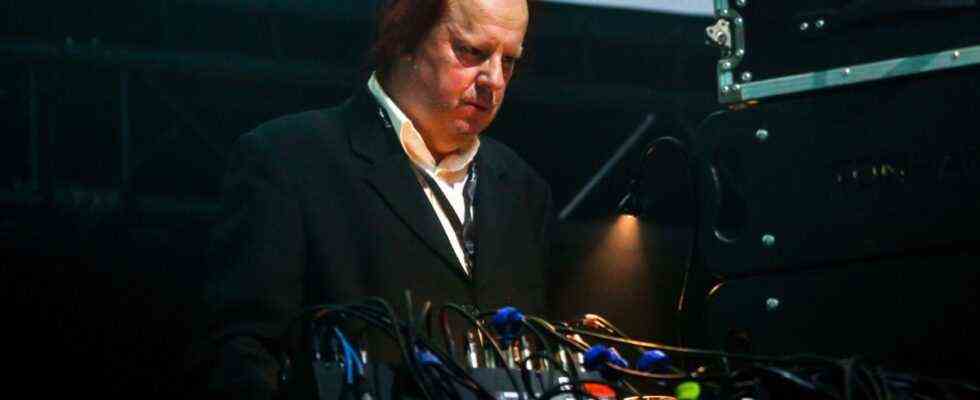In the beginning there was the sound. And the sound was just there and desperately looking for someone who could shape something out of it, for example music. Basically, that was the mission pursued by 17-year-old student Richard Harold Kirk when he teamed up with spiritual brothers Chris Watson and Stephen Mallinder, whom he knew from the streets of his home in Sheffield, in late 1973. It was about driving the noises out of coincidence.
To groom, dismember and re-illuminate the noise of the local steel industry, the blah of the media, the beeping and hum of electronic laboratory equipment until it made sense in their eyes. Not as gallery art. More as an immersive experience, as a counter-program to everything that was called entertainment in the early 70s. The word punk didn’t exist yet, but it would have fit.
Richard H. Kirk later said that it was sheer boredom that made him make music. He himself has the intelligent glam rock of David Bowie and Roxy Music loved, as well as the sound experiments of German bands such as Can and power plant, and these two cornerstones vividly sound out the cosmos of his work. Cabaret Voltaire, the group of Kirk, Watson and Mallinder named after the Zurich Dada bar, found the perfect balance between narrative and intoxication, song and noise, physical and machine-like.
Richard H. Kirk never learned of private matters – except that he never moved from Sheffield
On their first EP from 1978 there was a track called “Do the Mussolini (Headkick!)”. That the Düsseldorf dance-on-the-abyss poets DAF Borrowing this line for their first hit three years later is certainly no coincidence. A generation of electronic pop researchers, from Human League above Depeche Mode until New order, gave Cabaret Voltaire the stylish, never publicly smiling role model.
Watson left the group in 1981. As a duo with singer Mallinder, Kirk even made it into the charts, and in 1990 had producer Marshall Jefferson in Chicago produce an MTV-grade house album for him. Later Kirk was then – a logical consequence of his artistic strategy – as a techno musician and DJ. In 2009 he surprisingly brought Cabaret Voltaire back to life, with himself as the only permanent member and changing collaborations with younger musicians.
Just last November a new album was even released with “Shadow of Fear”, a collection of capricious technopop instrumentals, which were based on the traditional treasure trove of analog sounds, but effectively pulled the glass fiber of any nostalgia. Richard H. Kirk never learned of private matters – except that he never moved from Sheffield. He died on Tuesday at the age of 65.

